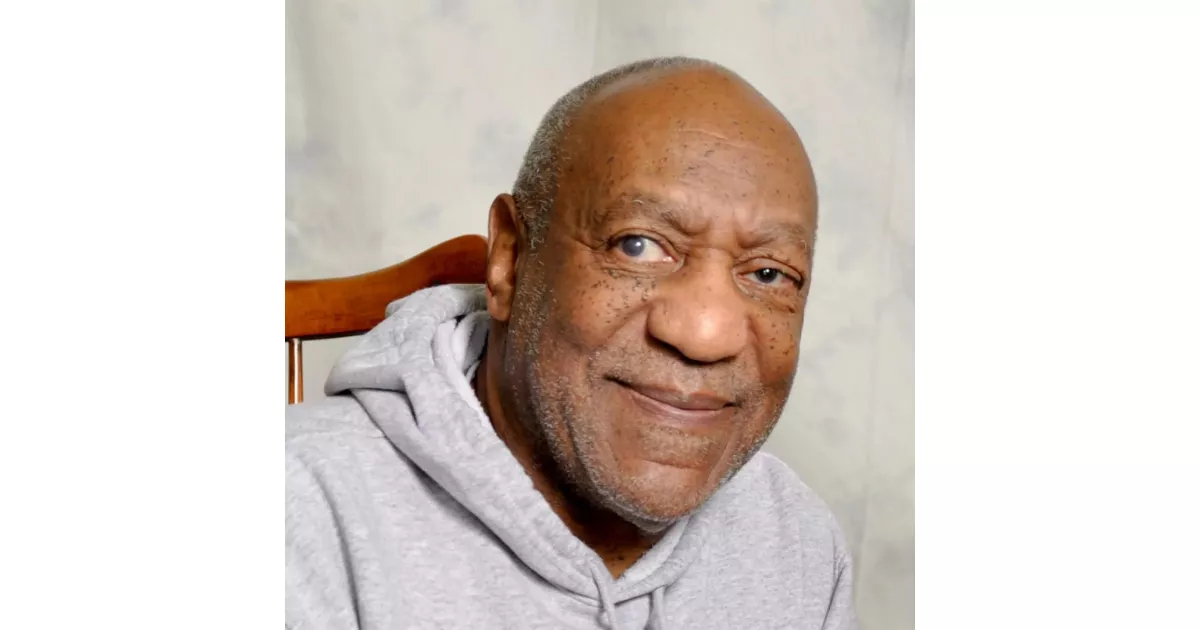William Henry Cosby Jr. is a former American comedian, actor, and media personality. He achieved fame in film, television, and stand-up comedy, most notably as Cliff Huxtable in The Cosby Show. Cosby's fatherly image and long career made him a pop culture icon. However, starting in 2014, numerous allegations of sexual assault surfaced, leading to the end of his career and a tarnished reputation.
1902: Targeting Parents rather than Children
In previous campaigns since the brand's launch in 1902, it was targeted towards parents rather than to children, a practice from which the company departed in 2001.
1944: "Baby, It's Cold Outside" written in 1944.
In 2018, the Christmas song "Baby, It's Cold Outside" was pulled from several radio stations amid controversy that its lyrics allegedly promote sexual predation. Susan Loesser, daughter of composer Frank Loesser, blamed Bill Cosby for backlash against its lyric "say, what's in this drink?". The song was written in 1944.
1963: 16th Street Baptist Church Bombing
In 1963, the 16th Street Baptist Church in Birmingham, Alabama was bombed injuring 22 people, killing four girls. This event was part of the documentary "4 Little Girls" in which Bill Cosby was interviewed.
January 25, 1964: Marriage to Camille Hanks
On January 25, 1964, Bill Cosby married Camille Hanks. They went on to have five children together.
December 1965: Earliest Allegation Against Cosby
In December 1965, Kristina Ruehli alleged that Cosby had drugged and assaulted her at his Beverly Hills home.
1965: Accusations of alleged assaults by Cosby committed against them
Between 1965 and 2004, actress Louisa Moritz, actor Lou Ferrigno's wife Carla, Florida nurse Therese Serignese, Playboy Playmates Valentino and Sarita Butterfield, actress Michelle Hurd, and eleven other women made accusations of alleged assaults by Cosby committed against them
1965: Starring Role in I Spy
In 1965, Bill Cosby began starring in the television show I Spy opposite Robert Culp.
1965: First Advertisement for White Owl Cigars
In 1965, Cosby's first advertisement was for White Owl cigars. He liked their tagline, "We're going to get you." Sales of the product rose, despite the stigma around using a black spokesperson.
1965: Birth of Erika Cosby
In 1965, Erika Cosby, one of Bill Cosby's daughters, was born.
1966: Emmy Award for I Spy
In 1966, Bill Cosby became the first African American to win an Emmy Award for acting, winning the Primetime Emmy Award for Outstanding Lead Actor in a Drama Series for I Spy.
1966: Birth of Erinn Cosby
In 1966, Erinn Cosby, one of Bill Cosby's daughters, was born.
1967: Start of African-American Art Collection
In 1967, Bill Cosby and his wife began collecting African-American art.
1967: Release of "Little Ole Man (Uptight, Everything's Alright)"
In 1967, Bill Cosby released the single "Little Ole Man (Uptight, Everything's Alright)" from his album Silver Throat: Bill Cosby Sings, which charted on the Billboard Hot 100.
December 1968: Publication of "The Regular Way" in Playboy
In December 1968, Bill Cosby's story, "The Regular Way," was featured in Playboy magazine.
1968: End of I Spy
In 1968, Bill Cosby's role in the television show I Spy ended.
1969: Starring in The Bill Cosby Show
In 1969, Bill Cosby began starring in the sitcom The Bill Cosby Show.
1969: Birth of Ennis Cosby
In 1969, Ennis Cosby, Bill Cosby's son, was born.
1969: Cindra Ladd alleges sexual assault by Cosby
In January 2015, Cindra Ladd alleged that in 1969 Bill Cosby drugged and sexually assaulted her.
1971: Starring in Man and Boy and The Electric Company
In 1971, Bill Cosby starred in the western film Man and Boy and also starred in the original cast of The Electric Company alongside Rita Moreno and Morgan Freeman.
1971: End of The Bill Cosby Show
In 1971, the sitcom The Bill Cosby Show, starring Bill Cosby, ended after two seasons.
1972: Creation of Fat Albert and the Cosby Kids
In 1972, Bill Cosby created, produced, and hosted the animated comedy television series Fat Albert and the Cosby Kids.
1973: Departure from The Electric Company
In 1973, Bill Cosby left the original cast of The Electric Company.
1973: Birth of Ensa Cosby
In 1973, Ensa Cosby, one of Bill Cosby's daughters, was born.
1974: Starring in Uptown Saturday Night
In 1974, Bill Cosby starred in Sidney Poitier's crime comedy Uptown Saturday Night.
1974: Promoting Jell-O Pudding for General Foods
In 1974, Cosby began promoting Jell-O pudding for General Foods. Sales responded immediately to the Cosby advertising, with growth after what had been a long decline.
1975: Starring in Let's Do It Again
In 1975, Bill Cosby starred in Sidney Poitier's crime comedy Let's Do It Again.
1975: Judy Huth alleges sexual assault by Cosby
In 2014, Judy Huth filed a civil suit against Bill Cosby in California, alleging that in 1975, he had sexually assaulted her when she was 16 years old.
1976: Starring in Mother, Jugs & Speed
In 1976, Bill Cosby starred in the comedy Mother, Jugs & Speed.
1976: Birth of Evin Cosby
In 1976, Evin Cosby, one of Bill Cosby's daughters, was born.
1977: Star on the Hollywood Walk of Fame
In 1977, Bill Cosby received a Star on the Hollywood Walk of Fame.
1977: Starring in A Piece of the Action
In 1977, Bill Cosby starred in Sidney Poitier's crime comedy A Piece of the Action.
1978: Starring in California Suite
In 1978, Bill Cosby starred in Neil Simon's California Suite alongside Richard Pryor.
1979: Hosting the Los Angeles Playboy Jazz Festival Begins
In 1979, Bill Cosby began hosting the Los Angeles Playboy Jazz Festival.
1979: Coca-Cola Campaign: "Have a Coke and a Smile"
In 1979, Cosby appeared in commercials for Coca-Cola's "Have a Coke and a Smile" campaign and made a guest appearance at the Great Get-Together.
1979: Introduction of Pudding Pops
In 1979, General Foods introduced Pudding Pops, the company's first frozen dessert product. With Cosby as spokesperson, it sold US$100 million its first year.
1981: "Have a Coke and a Smile" Continuation
In 1981, the Coca-Cola "Have a Coke and a Smile" campaign with Cosby continued.
1982: "Coke Is It" Campaign
In 1982, Cosby returned as Coca-Cola's spokesperson in its "Coke Is It" campaign, a series of commercials mocking the Pepsi Challenge.
1983: Release of Bill Cosby: Himself
In 1983, Bill Cosby's comedy film Bill Cosby: Himself was released.
September 1984: Debut of "The Cosby Show"
In September 1984, "The Cosby Show" debuted, marking Cosby's greatest television success. Cosby co-produced the series, held creative control, and was involved in every aspect of production, incorporating family-oriented humor. The show drew parallels to Cosby's own life, with characters similar to him and his wife.
1984: Beth Ferrier's Allegations
In 1984, Beth Ferrier, one of the anonymous "Jane Doe" witnesses in the Constand case, alleged that Cosby had drugged her coffee and she awoke with her clothes partially removed.
1985: The Cosby Show as Number One
From 1985, The Cosby Show was rated as the number-one show in America.
1985: End of Fat Albert and the Cosby Kids
In 1985, the animated comedy television series Fat Albert and the Cosby Kids, which Bill Cosby created, produced and hosted, ended.
1986: Beverly Johnson alleges she was drugged by Cosby during an audition
In November 2014, model Beverly Johnson alleged in a Vanity Fair article that she was drugged by Bill Cosby during a 1986 audition and knew other women with similar experiences.
1986: Barbara Bowman's alleged assaults by Cosby
In early 1986, Barbara Bowman, an aspiring model and actress, reported two incidents where she alleges she was drugged and sexually assaulted by Bill Cosby, after being introduced to him by her agent. Bowman stated that she escaped his attacks, returned home to Denver, and Cosby thereafter subverted her career.
1987: Airing of A Different World
In 1987, Bill Cosby produced the spin-off sitcom A Different World.
1987: Release of "Leonard Part 6"
In 1987, Cosby returned to film with the spy spoof "Leonard Part 6". Despite writing the story and being the producer, Cosby denounced the film during production and warned audiences to avoid it. The film was the first project for Columbia to be greenlighted by studio executive David Puttman.
1988: Initiation into Omega Psi Phi Fraternity
In 1988, Bill Cosby was initiated into the Beta Alpha Alpha graduate chapter of the Omega Psi Phi fraternity in White Plains, New York.
1989: Kraft General Foods Merger
In 1989, despite the merger of General Foods into Kraft, the then-newly merged company Kraft General Foods let Cosby remain with Jell-O as their spokesperson.
1989: The Cosby Show as Number One
Until 1989, The Cosby Show was rated as the number-one show in America.
1990: Endorsement of the 1990 United States census
In 1990, Cosby endorsed the United States census.
1990: Cosby Demands Wendy Williams' Firing
In 1990, Wendy Williams recalled that she referred to sexual assault allegations against Cosby on her radio show. Cosby called her boss in the middle of the broadcast demanding that Williams be fired.
1992: Post-"Cosby Show" Projects
In 1992, after "The Cosby Show" ended, Cosby started a revival of the game show "You Bet Your Life" (1992-93) and several TV movie projects.
1993: Appearing in The Meteor Man
In 1993, Bill Cosby appeared in minor roles in Robert Townsend's superhero comedy The Meteor Man.
1993: End of A Different World
In 1993, the spin-off sitcom A Different World, produced by Bill Cosby, ended.
1994: Starring in The Cosby Mysteries
In 1994, Bill Cosby starred in The Cosby Mysteries.
1994: TV movie: I Spy Returns and The Cosby Mysteries
In 1994, Bill Cosby was involved in the TV movie "I Spy Returns" and "The Cosby Mysteries".
February 6, 1995: Hosted CBS special, Kids Say the Darndest Things
On February 6, 1995, Bill Cosby hosted a CBS special, "Kids Say the Darndest Things", which was followed as a full-season show.
1995: End of The Cosby Mysteries
In 1995, The Cosby Mysteries, starring Bill Cosby, ended.
1996: Appearing in Jack
In 1996, Bill Cosby appeared in minor roles in Francis Ford Coppola's coming of age film Jack.
1996: New Show for CBS, Cosby
In 1996, Bill Cosby started a new show for CBS, "Cosby", again co-starring Phylicia Rashād. The show centered on Cosby as Hilton Lucas, who tries to find a new job after being downsized.
1996: Sexual Assault Allegations by Victoria Valentino
In 1996, Playboy Playmate Victoria Valentino gave a videotaped interview in which she made sexual assault allegations against Cosby.
January 16, 1997: Ennis Cosby's Murder
On January 16, 1997, Ennis Cosby, Bill Cosby's son, was murdered while changing a flat tire on Interstate 405 in Los Angeles.
1997: Autumn Jackson Convicted of Extortion
In 1997, Autumn Jackson, who claims to be Cosby's illegitimate daughter, was convicted of extortion after she threatened to make the claims public in the Globe tabloid.
January 9, 1998: Hosting "Kids Say the Darndest Things" Full-Season Show
On January 9, 1998, Bill Cosby hosted a full-season show, "Kids Say the Darndest Things", on CBS.
1998: Hosting Kids Say the Darndest Things
In 1998, Bill Cosby began hosting Kids Say the Darndest Things.
1998: Receiving Kennedy Center Honors
In 1998, Bill Cosby received Kennedy Center Honors, which were later rescinded in 2018.
1998: Lighting of Jell-O Billboard in Times Square
In 1998, Cosby was present for the lighting of the Jell-O brand's first billboard in New York's Times Square.
1999: Debut of "Little Bill" on Nickelodeon
In 1999, "Little Bill", a series for preschoolers created by Cosby, debuted on Nickelodeon. The show was a semi-biographical representation of Cosby's childhood in Philadelphia.
1999: Creation of Little Bill
In 1999, Bill Cosby created and produced the animated children's program Little Bill.
1999: Final Year in Jell-O Advertising
In 1999, Cosby's 25th year as spokesman for Jell-O was also the final year he appeared in its advertising. The company distributed 120,000 copies of his picture book series, Little Bill, into American public libraries.
January 28, 2000: Alleged Incident with Lachele Covington
On January 28, 2000, Lachele Covington alleged that Cosby had tried to put her hands down his pants and then exposed himself at his Manhattan townhouse.
February 1, 2000: Lachele Covington Files Criminal Complaint
On February 1, 2000, Lachele Covington filed a criminal complaint against Cosby, alleging that on January 28, 2000, he had tried to put her hands down his pants and then exposed himself at his Manhattan townhouse.
April 28, 2000: Last Episode of Cosby
On April 28, 2000, the last episode of the show Cosby aired.
June 23, 2000: Final Episode of "Kids Say the Darndest Things"
On June 23, 2000, the final episode of "Kids Say the Darndest Things", hosted by Bill Cosby, aired.
November 2000: "Little Bill" Renewed
In November 2000, the network renewed the popular program Little Bill.
2000: End of Cosby and Kids Say the Darndest Things
In 2000, the sitcom Cosby, starring Bill Cosby, ended. Bill Cosby also finished hosting Kids Say the Darndest Things.
2001: Publication of New Book and Commencement Addresses
In 2001, Bill Cosby published a new book and delivered commencement addresses at Morris Brown College, Ohio State University, and Rensselaer Polytechnic Institute.
2001: Jell-O Official State Snack
In 2001, Cosby appeared at the Utah State Senate to designate Jell-O the official state snack.
2001: Depart from targeting parents rather than children
In previous campaigns since the brand's launch in 1902, it was targeted towards parents rather than to children, a practice from which the company departed in 2001.
July 2002: Cosby receives Presidential Medal of Freedom
In July 2002, Bill Cosby was awarded the Presidential Medal of Freedom by President George W. Bush.
2002: Longest-Serving Celebrity Spokesperson
As of 2002, Cosby held the record for being the longest-serving celebrity spokesperson for a product, through his work with Jell-O.
2002: Longest-Standing Celebrity Endorsement
As of 2002, Cosby's time with Jell-O was considered the longest-standing celebrity endorsement in American advertising history.
2002: Receiving the Presidential Medal of Freedom
In 2002, Bill Cosby received the Presidential Medal of Freedom from George W. Bush.
2003: Appearance in Baadasssss!
In 2003, Bill Cosby made an appearance in Mario Van Peebles film Baadasssss!.
2003: Receiving the Bob Hope Humanitarian Award
In 2003, Bill Cosby received the Bob Hope Humanitarian Award.
January 2004: Andrea Constand Accuses Cosby
In January 2004, Andrea Constand accused Cosby of drugging and fondling her.
May 2004: Public Remarks Critical of African Americans
In May 2004, Bill Cosby made public remarks critical of African Americans who prioritize sports, fashion, and "acting hard" over education, self-respect, and self-improvement. He urged African American families to educate their children on American culture and teach them better morals at a younger age.
December 2004: Release of "Fat Albert" Film
In December 2004, the live-action film "Fat Albert," co-written and executive produced by Cosby, was released in theaters. The film was based on the popular character from his 1970s cartoon series.
2004: Accusations of alleged assaults by Cosby committed against them
Between 1965 and 2004, actress Louisa Moritz, actor Lou Ferrigno's wife Carla, Florida nurse Therese Serignese, Playboy Playmates Valentino and Sarita Butterfield, actress Michelle Hurd, and eleven other women made accusations of alleged assaults by Cosby committed against them
2004: Involvement with The Jazz Foundation of America
In 2004, Bill Cosby became actively involved with The Jazz Foundation of America and hosted its annual benefit, A Great Night in Harlem.
2004: Promotional Visit to Jell-O Gallery
In 2004, Cosby made a promotional visit to the Jell-O Gallery.
2004: End of Little Bill
In 2004, the animated children's program Little Bill, created and produced by Bill Cosby, ended.
February 2005: District Attorney declines to file charges against Cosby in 2005
In February 2005, District Attorney Bruce Castor declined to file criminal charges against Bill Cosby regarding Andrea Constand's allegations, citing insufficient evidence, a decision that later influenced Cosby's testimony in a civil lawsuit.
February 2005: No Charges in Constand Case
In February 2005, the District Attorney of Montgomery County, Pennsylvania, announced that there would be no charges against Cosby in the Andrea Constand case due to insufficient evidence.
March 2005: Constand Files Civil Claim
In March 2005, Andrea Constand filed a civil claim against Cosby, with thirteen women as potential witnesses.
July 2005: Beth Ferrier's Allegations
In July 2005, Beth Ferrier alleged that in 1984 Cosby had drugged her coffee and she awoke with her clothes partially removed.
2005: Publication of "Is Bill Cosby Right?"
In 2005, Michael Eric Dyson wrote the book "Is Bill Cosby Right? Or Has the Black Middle Class Lost Its Mind?" arguing that Cosby overlooked larger social factors reinforcing poverty and crime. Cornel West defended Cosby, saying he spoke out of compassion to encourage positive change.
2005: Andrea Constand's civil suit against Cosby
In July 2015, court records from Andrea Constand's 2005 civil suit against Bill Cosby were unsealed and released to the public. Cosby's deposition revealed his admission to casual sex with young women involving methaqualone use, which he acknowledged was illegal.
June 9, 2006: Philadelphia magazine publishes "Dr. Huxtable & Mr. Hyde" article
On June 9, 2006, Philadelphia magazine published Robert Huber's article, "Dr. Huxtable & Mr. Hyde," detailing Andrea Constand's allegations and similar stories from other women who claimed Cosby drugged and sexually assaulted them. The article suggested the allegations could potentially destroy Cosby.
November 1, 2006: Philadelphia magazine publishes details of Barbara Bowman's allegations
On November 1, 2006, Philadelphia magazine published details of Barbara Bowman's allegations of drug and sexual assault against Cosby, which she stated had occurred around early 1986 when she was eighteen years old.
November 2006: Settlement in Constand Case
In November 2006, Cosby settled out of court with Andrea Constand for an undisclosed amount.
2006: Cosby's attorney responds to allegations
In 2006, Cosby's attorney dismissed allegations as "unsubstantiated" and an example of "media vilification." A joint statement from Cosby and Constand clarified that a previous statement did not refer to Constand's case, which was resolved years ago.
May 2007: Cosby Speaks at High Point University Commencement
In May 2007, Bill Cosby spoke at the commencement of High Point University.
November 2007: Apparent Miffed Attitude Towards Obama
In November 2007, Bill Cosby publicly gave the impression that he was more miffed towards Barack Obama.
2008: Remarks on Crime and Moral Behavior
In 2008, Bill Cosby mentioned cities with high crime rates affecting young African American men and reiterated that African American parents were failing to instill proper moral behavior. He later expressed strong approval of Barack Obama after his election.
2009: Receiving Mark Twain Prize for American Humor
In 2009, Bill Cosby received the Mark Twain Prize for American Humor, which was later rescinded in 2018.
2009: Hosted Comedy Gala at Just for Laughs
In the summer of 2009, Bill Cosby hosted a comedy gala at Montreal's Just for Laughs, which is the largest comedy festival in the world.
2010: "Hello Jell-O" Campaign
In 2010, Cosby returned to Jell-O as executive producer for the company's "Hello Jell-O" campaign. In return, the brand sponsored his weekly web show OBKB, a children's interview series similar to Kids Say the Darndest Things.
2011: President's Award for Contributions to Advertising
In 2011, Cosby won the President's Award for Contributions to Advertising from the Advertising Hall of Fame.
2012: Hosting the Los Angeles Playboy Jazz Festival Ends
In 2012, Bill Cosby concluded his run hosting the Los Angeles Playboy Jazz Festival.
2013: Criticism of Republican Politicians
In 2013, Bill Cosby criticized Republican politicians' views on socioeconomic and racial issues, leading to the unsealing of documents in a previous civil suit alleging sexual assault and renewed interest in older allegations due to the contrast between his public image and the accusations.
October 16, 2014: Hannibal Buress criticizes Cosby's legacy in comedy routine
On October 16, 2014, during a comedy routine in Philadelphia, Hannibal Buress criticized Bill Cosby's legacy and public moralizing, referencing allegations of sexual assault against Cosby.
November 2014: Cosby Responds to Allegations
In November 2014, Bill Cosby responded to a question about the allegations of sexual assault against him by saying, "I don't talk about it."
November 2014: Several women accuse Cosby of sexual assault
In November 2014, following Hannibal Buress's remarks, model Janice Dickinson, actress Louisa Moritz, actor Lou Ferrigno's wife Carla, Florida nurse Therese Serignese, Playboy Playmates Valentino and Sarita Butterfield, actress Michelle Hurd, and eleven other women made accusations of alleged assaults by Cosby.
2014: Comics credit Cosby as innovator
Before the 2014 allegations, younger, well-established comics like Jerry Seinfeld had credited Bill Cosby as an innovator both as a practitioner of stand-up comedy, as well as a person who paved the way for comics to break into sitcom television.
2014: End of Advertising Roles Due to Allegations
In 2014, Cosby stopped appearing in advertising roles due to the widespread publicization of his sexual assault allegations.
2014: Judy Huth files civil suit against Cosby
In 2014, Judy Huth filed a civil suit against Bill Cosby in California, alleging that he had sexually assaulted her in 1975, when she was 16 years old.
2014: Allegations Resurface
In 2014, after the allegations resurfaced Wendy Williams recalled that during her radio show in 1990, she referred to sexual assault allegations against Cosby that had been published in the National Enquirer tabloid.
2014: "Conversations" Exhibit at the National Museum of African Art
In 2014, the Cosbys' collection of African-American art was displayed in "Conversations", an exhibit at the National Museum of African Art, which became controversial due to sexual assault allegations against Cosby.
January 2015: Cindra Ladd alleges sexual assault by Cosby
In January 2015, Cindra Ladd alleged that Bill Cosby drugged and sexually assaulted her in 1969.
May 2015: Cosby says he's never seen anything like the allegations
In May 2015, Bill Cosby stated that he had been in the entertainment business for 52 years and had "never seen anything like this" in response to questions about the allegations.
May 2015: Lili Bernard claims sexual assault by Cosby
In May 2015, Lili Bernard claimed that Bill Cosby sexually assaulted her in the early 1990s and that she had been interviewed by police in Atlantic City, New Jersey, regarding the allegation.
July 2015: Petition launched to revoke Cosby's Presidential Medal of Freedom
In July 2015, PAVE launched a WhiteHouse.gov petition to President Barack Obama to revoke the Presidential Medal of Freedom awarded to Bill Cosby in July 2002.
July 2015: Court records from Constand's civil suit unsealed
In July 2015, court records from Andrea Constand's 2005 civil suit against Bill Cosby were unsealed and released to the public. Cosby's deposition revealed his admission to casual sex with young women involving methaqualone use, which he acknowledged was illegal.
July 27, 2015: New York magazine features 35 Cosby accusers
On July 27, 2015, New York magazine's cover featured images of 35 women who alleged they were assaulted by Bill Cosby, alongside an empty chair symbolizing potential victims who hadn't come forward. The stories highlighted similar patterns of Cosby allegedly offering drugged beverages and sexually assaulting impaired or unconscious women.
September 17, 2015: A&E broadcasts "Cosby: The Women Speak"
On September 17, 2015, A&E broadcast the documentary "Cosby: The Women Speak," featuring interviews with thirteen alleged victims of Bill Cosby. By October 24, nearly sixty women had accused Cosby of sexual abuse, with some describing him as a "sociopath" and "serial rapist."
2015: Loss of Eyesight
In 2015, Bill Cosby began losing his eyesight. This was confirmed in an interview in 2017.
2015: Ebony magazine releases issue on Cosby allegations
In 2015, Ebony magazine released an issue with the allegations against Bill Cosby as the cover story, discussing the importance of "The Cosby Show" and if it is possible to separate Bill Cosby from Cliff Huxtable. The cover depicted a photograph of the Huxtables with a cracked frame, symbolizing the show's damaged and complicated legacy.
2015: Renewed Allegations by Shawn Upshaw Brown
In 2015, Shawn Upshaw Brown, who admitted to having an affair with Cosby in the 1970s, went into more detail with her renewed allegations in an interview.
2016: Report of Legal Blindness
In 2016, Bill Cosby's attorneys reported that he was now legally blind.
April 2017: Interview with National Newspaper Publishers Association
In April 2017, Bill Cosby agreed to be interviewed by the National Newspaper Publishers Association, where he and a former publicist confirmed that he had lost his eyesight.
February 23, 2018: Death of Ensa Cosby
On February 23, 2018, Cosby's daughter Ensa died of renal disease while awaiting a kidney transplant.
April 26, 2018: Cosby found guilty of aggravated indecent assault
On April 26, 2018, Bill Cosby was found guilty of three counts of aggravated indecent assault against Andrea Constand following a jury trial. An initial trial had ended in a mistrial.
May 3, 2018: Expulsion from the Academy of Motion Picture Arts and Sciences
On May 3, 2018, Bill Cosby was expelled from the Actors Branch of the Academy of Motion Picture Arts and Sciences due to breaches of the academy's standards of conduct.
September 25, 2018: Cosby sentenced to prison
On September 25, 2018, Bill Cosby was sentenced to three to ten years in state prison, along with a $25,000 fine and court costs from both trials. He was moved to SCI Phoenix in Skippack Township, Pennsylvania, on the same day.
2018: "Baby, It's Cold Outside" pulled from radio stations amid controversy
In late 2018, the Christmas song "Baby, It's Cold Outside" was pulled from several radio stations amid controversy that its lyrics allegedly promote sexual predation. Susan Loesser blamed Bill Cosby for backlash against its lyric "say, what's in this drink?"
January 28, 2019: Cosby moved into general prison population
On January 28, 2019, Bill Cosby was moved from administrative segregation into the general population at SCI Phoenix.
December 10, 2019: Cosby's verdict upheld by Pennsylvania Superior Court
On December 10, 2019, the Pennsylvania Superior Court upheld the verdict in Bill Cosby's case on the initial level of appeal.
June 23, 2020: Pennsylvania Supreme Court agrees to hear appeal of Cosby's conviction
On June 23, 2020, the Pennsylvania Supreme Court agreed to hear a further level of appeal of Bill Cosby's sexual assault conviction, focusing on issues related to witness testimony and potential violations of Cosby's rights.
June 30, 2021: Pennsylvania Supreme Court Overturns Cosby's Conviction
On June 30, 2021, the Pennsylvania Supreme Court overturned Bill Cosby's conviction, citing violations of his due process rights related to a prior agreement with a district attorney and the use of his civil lawsuit testimony in the criminal trial.
November 2021: District Attorney files papers seeking to overturn decision of state supreme court
In November 2021, the District Attorney filed papers with the Supreme Court of the United States seeking to have the Court consider whether to overturn the decision of the state supreme court regarding Bill Cosby's overturned conviction.
2021: Post-Prison Comeback Plans
Following his release from prison in 2021, Bill Cosby planned a comeback, including a comedy tour and a five-part docuseries covering his legacy and prison experience, as well as plans for a book. However, these plans were later put on hold.
January 2022: Cosby's attorney urges Supreme Court to decline review
In late January 2022, Bill Cosby's attorney filed a response, urging the Supreme Court to decline review of the Pennsylvania Supreme Court's decision that overturned Cosby's conviction.
March 7, 2022: Supreme Court declines to review Pennsylvania court decision
On March 7, 2022, the Supreme Court declined to review the decision of the Pennsylvania Supreme Court that overturned Bill Cosby's conviction.
2022: Release of "We Need to Talk About Cosby" Documentary
In 2022, W. Kamau Bell released the Showtime documentary "We Need to Talk About Cosby", which explores Cosby's life and career, addressing the sexual assault allegations through conversations with comedians, journalists, and survivors. Cosby's representative denied all allegations, stating Cosby stands with the excluded and disenfranchised.
2022: "Law & Order" episode touches on Cosby cases
In 2022, the premiere of the 21st season of "Law & Order" featured a plot resembling the Cosby cases, involving the murder of an entertainer released from prison after his conviction was overturned, who had been accused of rape and maintained his innocence.
2022: Jury rules in favor of Judy Huth
In 2022, the trial began in Judy Huth's civil suit against Bill Cosby, alleging sexual assault in 1975. The jury ruled in Huth's favor, and Cosby was ordered to pay $500,000 in compensatory damages.
Mentioned in this timeline
CBS Broadcasting Inc CBS is a prominent American commercial broadcast...

The Billboard Hot is the primary music chart in the...
California is a U S state on the Pacific Coast...

Wendy Williams is an American former broadcaster media personality and...
CNN Cable News Network is a multinational news organization founded...
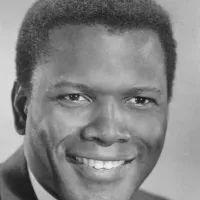
Sidney Poitier was a trailblazing Bahamian-American actor director activist and...
Trending
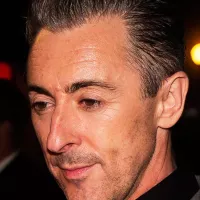
10 months ago Alan Cumming and Stephen Colbert team up for 'Billionaires Are Actually Good' song.
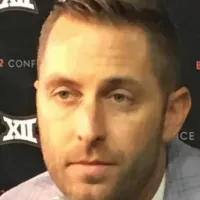
Kliff Kingsbury is an American football coach currently serving as the offensive coordinator for the Washington Commanders in the NFL...
3 months ago IBM's new chip paves way for usable quantum computers by 2029.
Matt Nagy is an American football coach currently serving as the offensive coordinator for the Kansas City Chiefs Previously he...
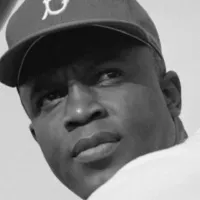
Jackie Robinson was an American professional baseball player who broke Major League Baseball's color barrier on April when he started...

3 months ago Michelle Obama: America 'not ready' for a woman president, cites sexism concerns.
Popular

Thomas Douglas Homan is an American law enforcement officer who...

Melania Trump a Slovenian-American former model has served as First...

William Franklin Graham III commonly known as Franklin Graham is...

Jupiter is the fifth and largest planet from the Sun...

XXXTentacion born Jahseh Dwayne Ricardo Onfroy was a controversial yet...

Instagram is a photo and video-sharing social networking service owned...
